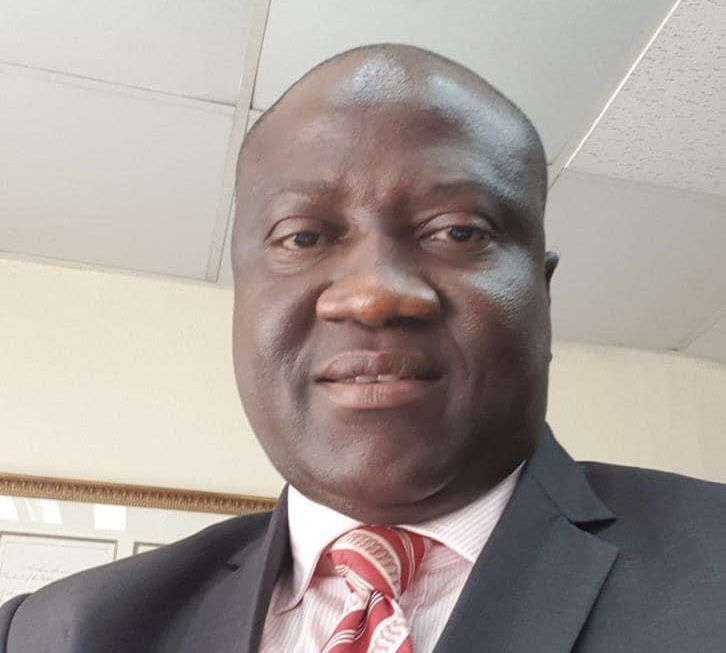Can a Regulator Who Ignores Rules Be Trusted to Enforce Them?
Henry Saamoi, the Acting Governor of Liberia’s Central Bank, is under intense scrutiny following revelations of his disregard for tenure restrictions during his time at the International Bank (IB). Saamoi and IB breached the Central Bank’s 10-year tenure limit for banking CEOs. —a key rule designed to preserve integrity in the financial sector. This raises serious concerns about his credibility and suitability for a role that demands strict adherence to the law.
Saamoi, also is most likely not eligible for the role, as CBL regulations do not allow retired CEOS to remain in the banking sector, but mandates a cooling off period of 2 years, which he did not observe.
Tenure Violations and Regulatory Hypocrisy:
A governance regulation for Banking CEOs, issued under presidential directive in 2012, regulates that there is a 10-year tenure limit on Banking CEOs, to promote fresh leadership, prevent unchecked influence, and strengthen governance. Saamoi’s prolonged tenure at IB suggests a troubling disregard for these principles. His history implies a troubling precedent: if he disregards tenure limits when they apply to him, how can he credibly demand that others comply?
The answer may lie at the Central Bank, how was Saamoi allowed to remain for 12 years, an extension not for 1 or 2 months but for 2 years? Who at Central Bank approved this extension in direct violation of the presidential directive/regulation? This borders on an integrity issue for CBL, Saamoi and International Bank because other institutions have been held to this standard over the years. Many other institutions have instituted acting CEOs to ensure compliance with the standard and avoid CBL fines or sanctions. The tenure regulation is in place to avoid undue influence and promote good governance. The complication is the violator has become the regulator and will most likely overlook the violation in CBL’s oversight function in monitoring International Bank.
Moreover, as acting governor, Saamoi is expected to enforce the fines associated with such breaches. Yet the tenure violations at IB were in his favor, making it unlikely he would enforce any penalties against his former employer. This conflict of interest undermines public trust in his role as a fair and impartial enforcer of banking regulations.
The regulation also goes further to indicate that once the head of a financial institution is retired, he is not eligible to head another financial institution. How then was Saamoi appointed to CBL, even in an acting role? The law is in place to ensure two things do not happen. Firstly, that one person does not move from being the CEO of one bank, to becoming the CEO of another while carrying the knowledge of all its trade secrets and customers – this would create an unfair advantage. Secondly, one person can not move from being a Bank CEO to heading the Central Bank (which is also a financial institution) – to avoid moving from a bank to now being the regulator over your recent competition, this may put previously rival banks at a disadvantage.
In regulating IB, Saamoi is being asked to review his own work over the past 12 years, this is conflict of interest. In less than a week of Saamoi’s Acting appointment, CBL put out a statement in defense of International Bank, stating its strong healthy position. Was this truly unbiased?
The regulation is probably in place to avoid conflict of interest situations just like this. One wonders if the CBL is truly able to carry out effective supervision of IB Bank with the former CEO at its head, this is a clear violation of the good governance regulation.
Implications for the Central Bank and Financial Sector:
The Central Bank of Liberia relies on a credible and principled leader to oversee the country’s financial institutions. Saamoi’s past actions send a troubling message: that rules are optional if inconvenient. His tenure breaches could signal a tolerance for similar behavior from other institutions, destabilizing Liberia’s financial regulatory framework. If banks and financial bodies see that regulatory figures are lenient or self-interested, they may push boundaries, increasing risks and undermining financial stability.
Undermining the Mission of the Central Bank:
The Central Bank’s mission is to safeguard economic health and uphold sound banking practices. To do so, it needs leadership committed to enforcing rules without exception or bias. Saamoi’s questionable history of violations signal the opposite: a willingness to circumvent laws when it serves him. This disregard for institutional integrity jeopardizes the trust and authority essential for effective regulation.
These issues raise significant questions about Saamoi’s fitness as Central Bank governor, even Acting.
CBL needs a leader who upholds the standards and regulations needed to foster a stable financial environment. With Saamoi’s history of bending the rules, his suitability for this role is rightfully in question. The CBL’s own regulation may render him ineligible. The country’s fragile financial system cannot afford a regulator whose credibility is compromised. Unfortunately the player has become the referee and may not truly execute the function as Liberia needs, and this is exactly why CBL governance regulations exist to prevent situations like this, Regulations must be adhered to, even by the regulator.

